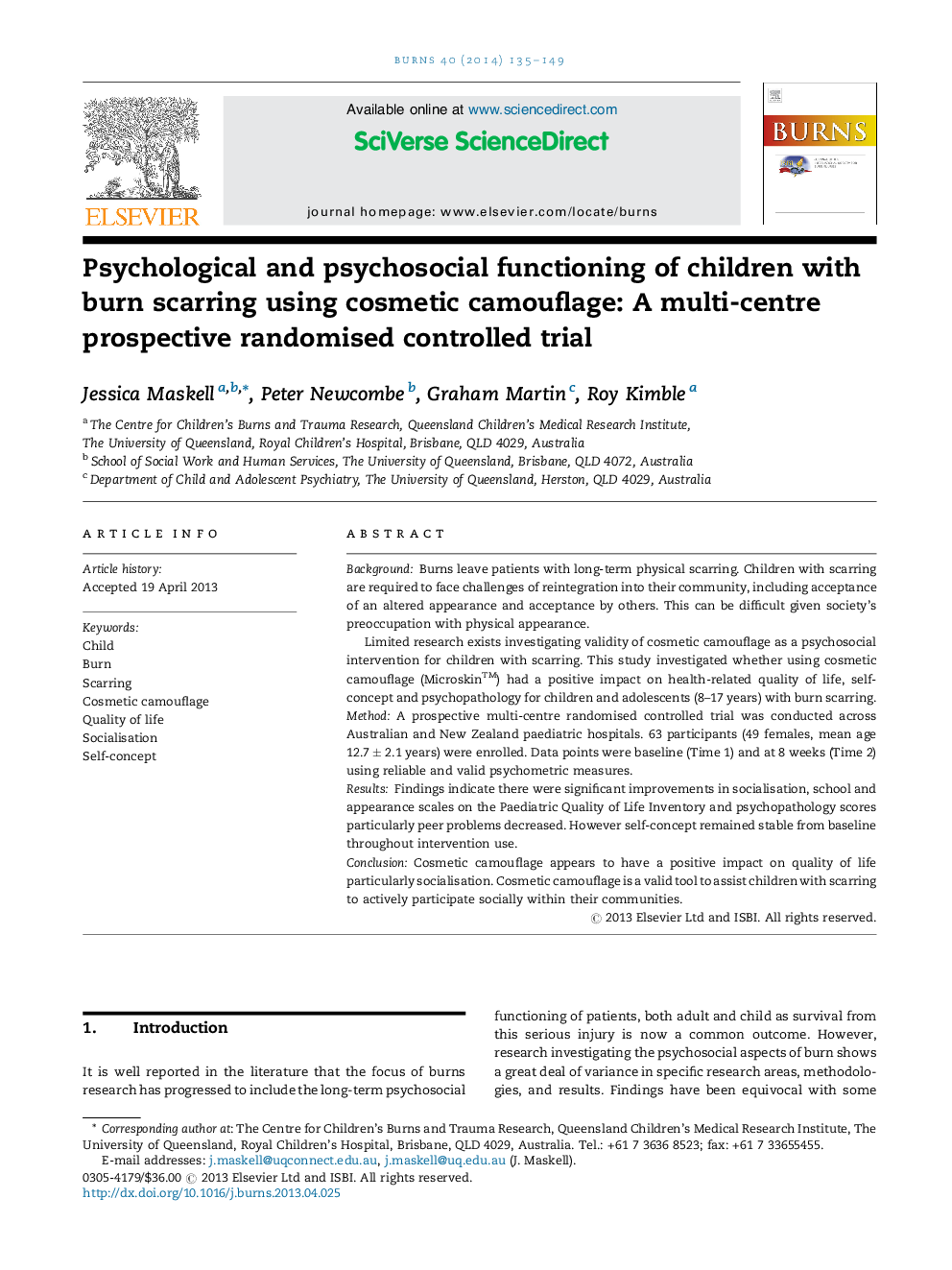| Article ID | Journal | Published Year | Pages | File Type |
|---|---|---|---|---|
| 3104630 | Burns | 2014 | 15 Pages |
BackgroundBurns leave patients with long-term physical scarring. Children with scarring are required to face challenges of reintegration into their community, including acceptance of an altered appearance and acceptance by others. This can be difficult given society's preoccupation with physical appearance.Limited research exists investigating validity of cosmetic camouflage as a psychosocial intervention for children with scarring. This study investigated whether using cosmetic camouflage (Microskin™) had a positive impact on health-related quality of life, self-concept and psychopathology for children and adolescents (8–17 years) with burn scarring.MethodA prospective multi-centre randomised controlled trial was conducted across Australian and New Zealand paediatric hospitals. 63 participants (49 females, mean age 12.7 ± 2.1 years) were enrolled. Data points were baseline (Time 1) and at 8 weeks (Time 2) using reliable and valid psychometric measures.ResultsFindings indicate there were significant improvements in socialisation, school and appearance scales on the Paediatric Quality of Life Inventory and psychopathology scores particularly peer problems decreased. However self-concept remained stable from baseline throughout intervention use.ConclusionCosmetic camouflage appears to have a positive impact on quality of life particularly socialisation. Cosmetic camouflage is a valid tool to assist children with scarring to actively participate socially within their communities.
